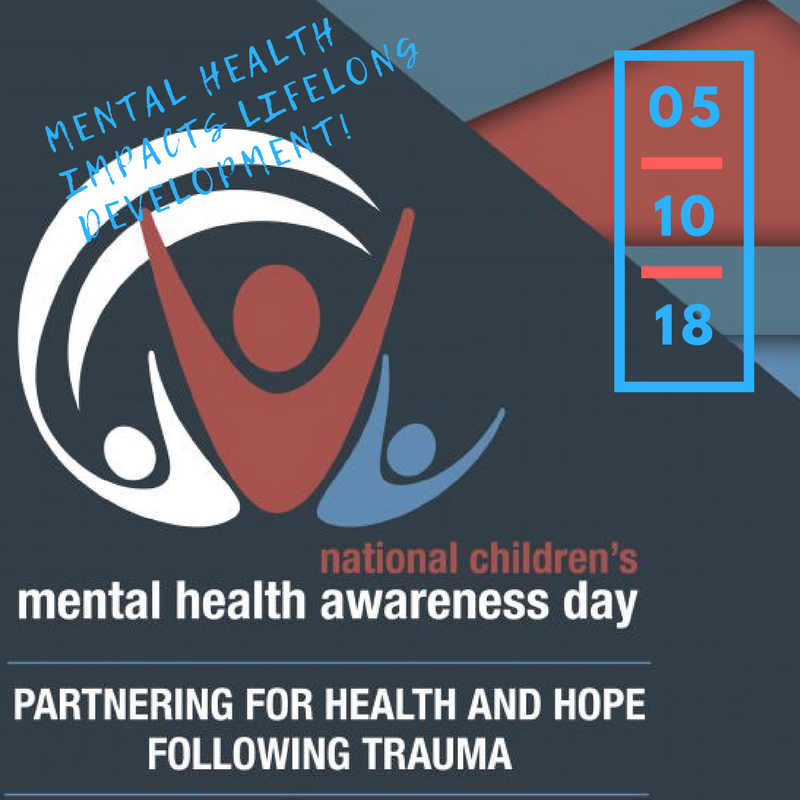
National Children’s Mental Health Awareness Day
May 10th is nationally the day for Children’s Mental Health Awareness. 1 out of 5 children in America have a diagnosable mental disorder, and only half of those who are suffering get the treatment they need. Many children who have a mental health disorder are at a higher risk for suicide, substance use, school dropout, juvenile detention and other kinds of health problems, but these outcomes can be prevented if mental illnesses are caught early on. Research has found that many lifelong mental illnesses begin when people are in their teens. If teens and children could get diagnosed and treated early on, they would have a better prognosis later in life. Among the most common mental disorders that start in childhood are anxiety disorders, depression, and Attention-Deficit and Hyperactivity Disorder (ADHD). Less common are psychotic disorders, but such disorders are also less common among the general population.
How mental illnesses manifest themselves can change as people grow older. Children will show different signs of mental illness than adults, because at young ages they do not have the complete ability to articulate how they are feeling. For example, if a child is feeling anxious, they might not know how to articulate common symptoms of anxiety and might complain about a related symptom like a stomachache. The problems resulting from a mental illness that a child might experience could be present in a variety of different settings including school, home, and among peers. It is important to check in with teachers, coaches, or other parents if you notice that your child’s behavior has changed. Child psychologists who specialize in helping children with mental disorders will often do the same and check in with multiple people who work with the child on a daily basis.
Other signs that could be indicative of a problem are changes in appetite or sleep, social withdrawal, self-destructive behavior, poor school performance or extremely regressing to behavior associated with children of younger ages. Many children may also give physical complaints, because they might not be able to describe what they are feeling or due to the physical manifestation of many mental disorders. These are just generic signs that could pinpoint a problem among children; it is also imperative to communicate with your child and know what is normal for them versus what could be indicative of a larger problem. This is important for neuro developmental disorders where the onset is at a young age and caused by abnormal brain development, like in ADHD and ASD.
Teens might also have different ways of expressing their feelings without directly looking for help. For many, it takes several years before they seek the appropriate kind of help. Teenage years are often the time period for the onset and risk of many disorders like substance use disorders, addictions, eating disorders or bipolar disorder. Among teens, the symptoms to look for are similar to children: changes in sleep patterns, appetite, decline in academic performance, or sudden personality shifts could all be indicators. Many teens might also pick up a habit of substance use as a way of trying to self-medicate for undiagnosed mental disorders, which is also important for parents to be aware of, so that they can get help before the problem escalates.
As with the treatment of mental disorders in adults, there are a lot of options for children and teens including therapy and medication. The problem remains that many children are not given access or aware of the many ways in which they can look for help. If you believe that someone you know is struggling with mental health, it is important to find treatment as early as possible, so that they can start recovery.
Please contact the professional team at Lifeline Connections! You can visit Lifelineconnection.org or call 360.397.8246 for more information.
